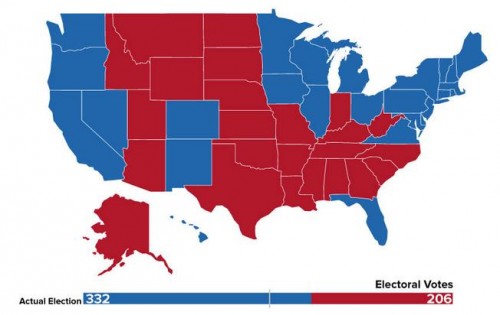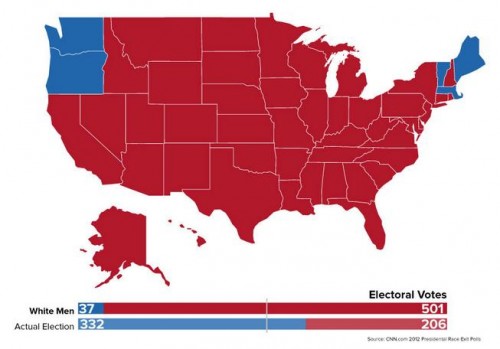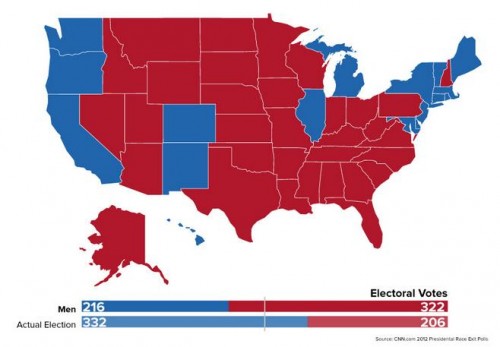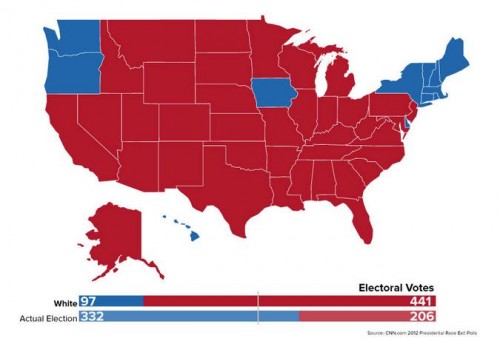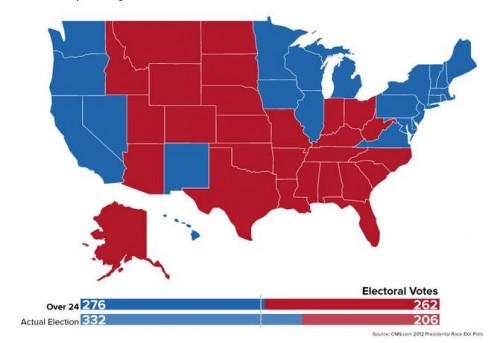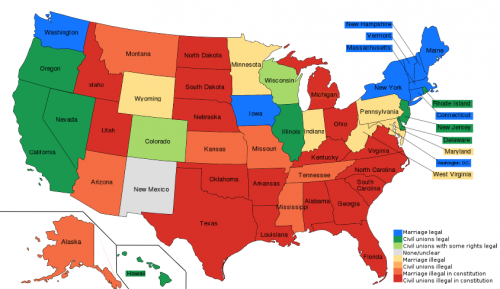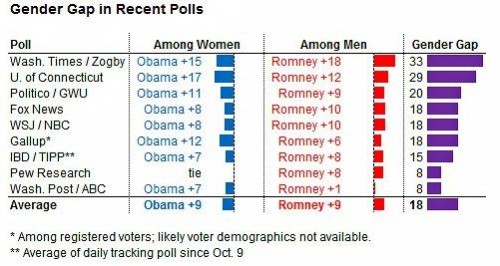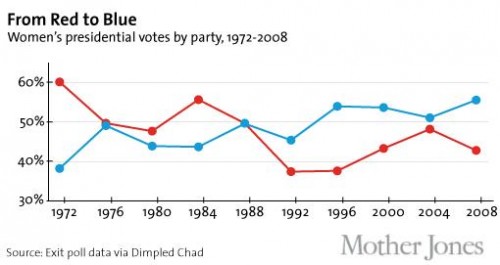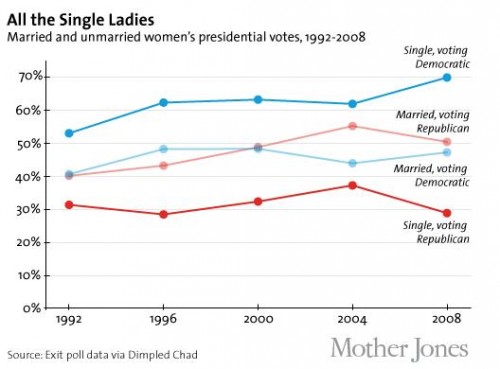…voting rights still excluded certain groups?
Buzzfeed has put together a great collection of U.S. maps showing what last Tuesday’s election would have looked like if women, non-whites, and 18- to 23-year-olds had never been given the vote.
Actual results:
Results with just white men:
Results with only men, all races:
Results with only white people, men and women:
Results excluding people 18- to 23-years-old:
The results are stunning and are a hint of just how consequential the ongoing voter suppression and disenfranchisement can be.
Lisa Wade, PhD is an Associate Professor at Tulane University. She is the author of American Hookup, a book about college sexual culture; a textbook about gender; and a forthcoming introductory text: Terrible Magnificent Sociology. You can follow her on Twitter and Instagram.

